Published Apr 5, 2023
Are We Ready for First Contact?
Considering our present, would we intrigue any visitors in 2063?
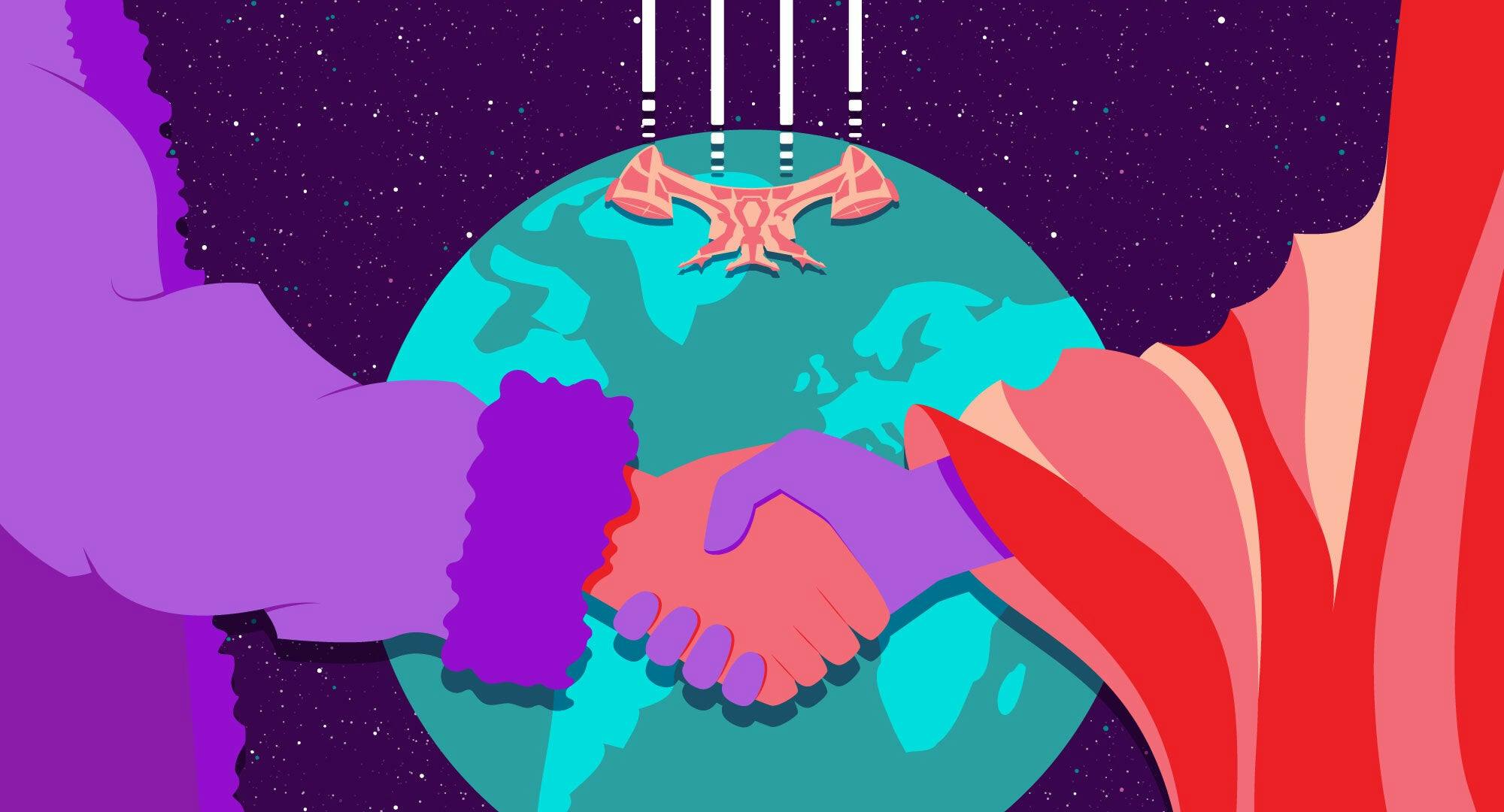
StarTrek.com / Rob DeHart
Today is First Contact Day, the annual Star Trek celebration of Zefram Cochrane’s warp drive test flight and humanity’s subsequent first encounter with the Vulcans as seen in Star Trek: First Contact. Within the film, that event took place on April 5, 2063, a mere 40 years from today. That day was the beginning of a new era for Earth, and the start of a glorious future for humanity’s subsequent journey to the stars. But as inspiring as that was, it also underscores how far away we are from actually achieving it. If first contact happened today, would we be ready for it?
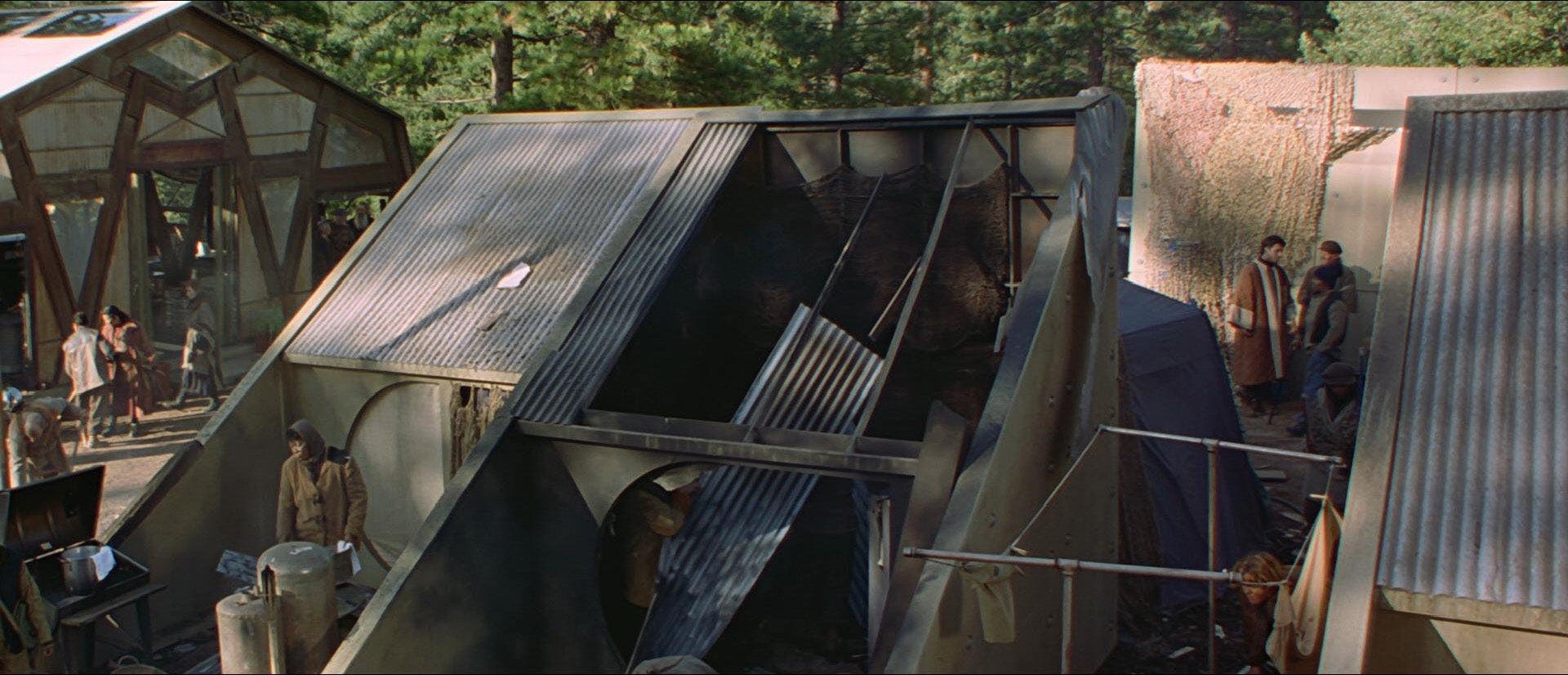
StarTrek.com
Compared to the future history of First Contact, our present situation isn’t as grim. We’re not coming out of a nuclear war, and we’re not living in a post-apocalyptic hellscape. However, the problems of yesterday remain the problems of today. Racism, bigotry, xenophobia, inequality, poverty, and hatred are no closer to being eliminated than they were decades ago when Gene Roddenberry envisioned a future where humanity had moved beyond those limitations. Perhaps the bar was set too high because that level of improvement seems so far out of reach.
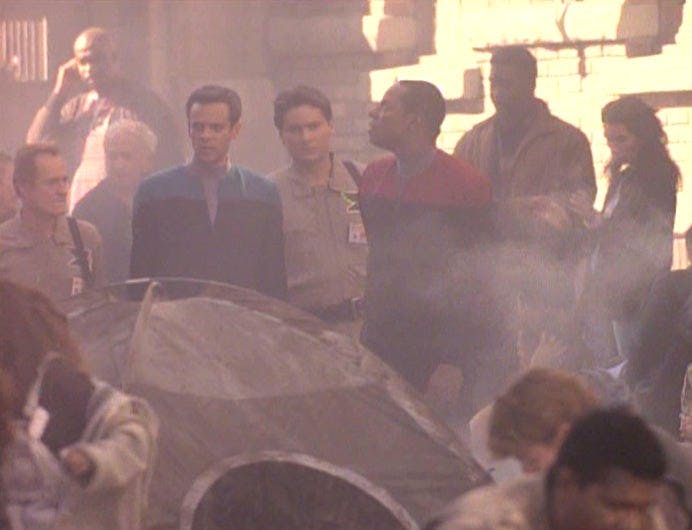
StarTrek.com
Star Trek’s writers have often been ahead of the curve regarding social issues. Star Trek: Deep Space Nine episodes, “Past Tense, Parts I and II,” showed fans a vision of 2024 where the devastating Bell Riots helped people realize that the plight of the homeless and downtrodden was being swept under the rug. It was the catalyst for a positive change in society. Yet in our current world, homelessness and food insecurity remain growing issues with no solutions in sight. People aren’t being herded off to “Sanctuary Districts” against their will, but that appears far more likely than society stepping up to protect its most vulnerable members.
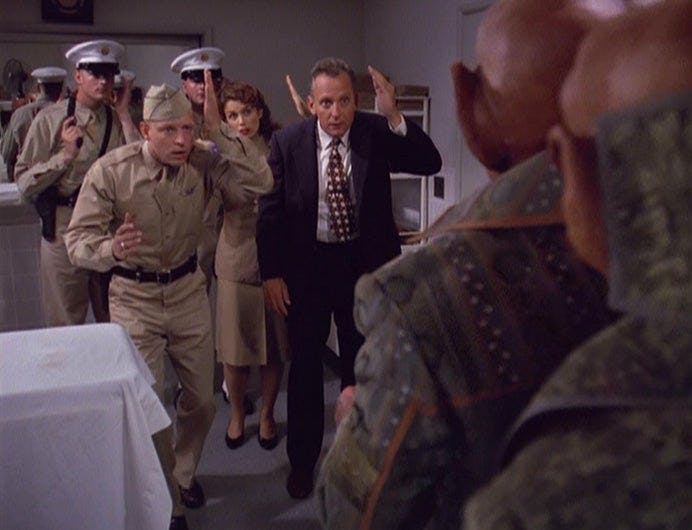
StarTrek.com
What would another species see if they came to us now? Certainly not a society ready to take our place among the stars. We can’t even handle the problems of our own planet, so how could we be expected to do more in the universe? In retrospect, it’s fortunate that the first species to officially meet humanity were the Vulcans. Their human-like appearance may have soothed any initial fears held by Cochrane and his fellow survivors. Would things have gone differently with a less humanoid species? Once again, Star Trek shows us this possibility in the DS9 episode “Little Green Men,” when Quark, Rom, Nog, and Odo found themselves trapped in Roswell, New Mexico, in 1947. Even Quark’s improvised pitch of trade with the Ferengi failed to win their captors’ trust. Fortunately, they managed to escape the past with their lives.
There is also a darker version of first contact, as seen in Star Trek: Enterprise’s “In a Mirror, Darkly, Part I.” In that timeline, Cochrane and his group murdered the Vulcan ambassador and stormed his ship. During the decades that followed, this act of aggression led to the formation of the Terran Empire that was glimpsed in the Mirror Universe in both The Original Series and in Enterprise. Given the state of the world, it’s all too easy to imagine people simply attacking any visitor to take what they want.
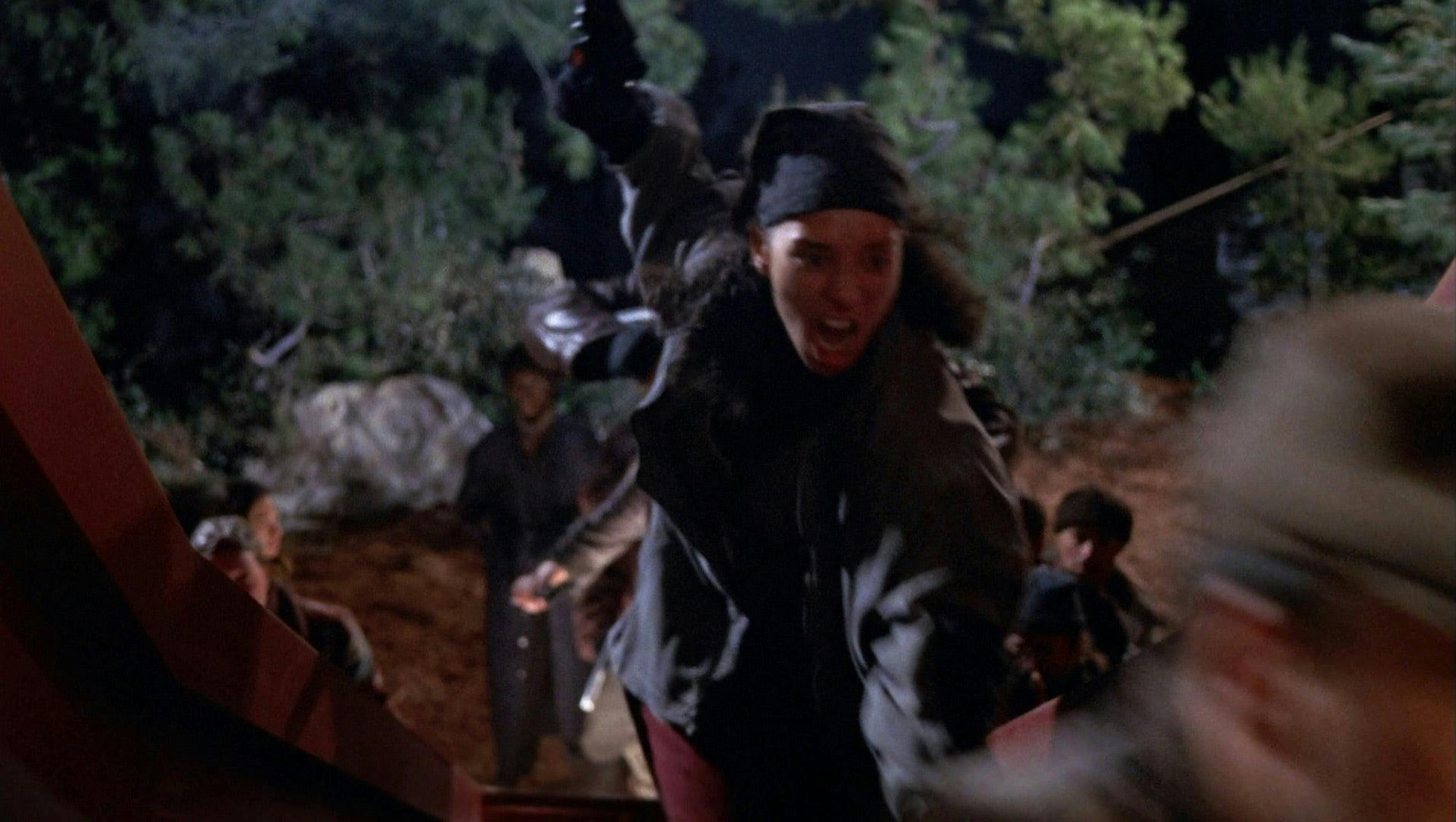
StarTrek.com
One aspect that we haven’t considered is that humanity’s flaws may be unique to humanity itself. Would other species go to war with each other? Or is the concept of war an invention of this world’s people? There are so many sci-fi stories about the people of Earth fending off invasions from other worldly races that it may color our perceptions if, and when, they do enter our lives. Would our visitors be put off by that level of mistrust? And what would they say about our collective fantasies about fighting them in battle and beating them in war? Those things may not win us favor in the potential community of planets. If anything, it could encourage other species to avoid us altogether.
Beyond our collective character flaws, it has to be noted that our space travel technology is still woefully behind the fantastical dreams of science fiction. We haven’t made it to Mars yet, much less an inhabitable world where humanity can thrive. Theoretically, the secret to faster-than-light travel may be solved many years down the line, but that is also something that our current level of technology can’t handle. Considering the early strides humanity made to land on the moon in the last century, our actual trek to the stars seems to have stalled.
It can be all too easy to lose oneself to hopelessness, especially when it feels like nothing will ever change or improve. But one of the ideals of Star Trek is that humanity can overcome its flaws and build a better future together. We will never be perfect, and there may always be people who value their own wealth and power over the needs of others. But collectively, we can be better. And we have to be. The challenges of the next century will be immense, especially if the world’s resources continue to dwindle in the face of climate change. These are problems on a scale that we have never faced before. Fortunately, human ingenuity has proven to be resilient and constantly surprising. We may yet prevail against these challenges if we work together for the betterment of our species and for the world itself.

StarTrek.com
If first contact were to happen today, I don’t believe that we are ready for that just yet. There’s simply too much to deal with here on Earth before making plans for interstellar expeditions. But I also believe that we can be ready someday, slowly but surely. And the journey we must take to reach that point is within ourselves, not without. When the time finally comes, and we are finally in a place to accept first contact, I would hope that humanity follows Cochrane’s example and extends its arm in friendship to any visitors from another world. We may not live to see that day within our lifetimes, but it’s still a beautiful dream to share.
Blair Marnell is a freelance writer for several different sites, including Superhero Hype, Marvel.com, Fandom, Digital Trends, and more!
Stay tuned to StarTrek.com for more details! And be sure to follow @StarTrek on Facebook, Twitter, and Instagram.

